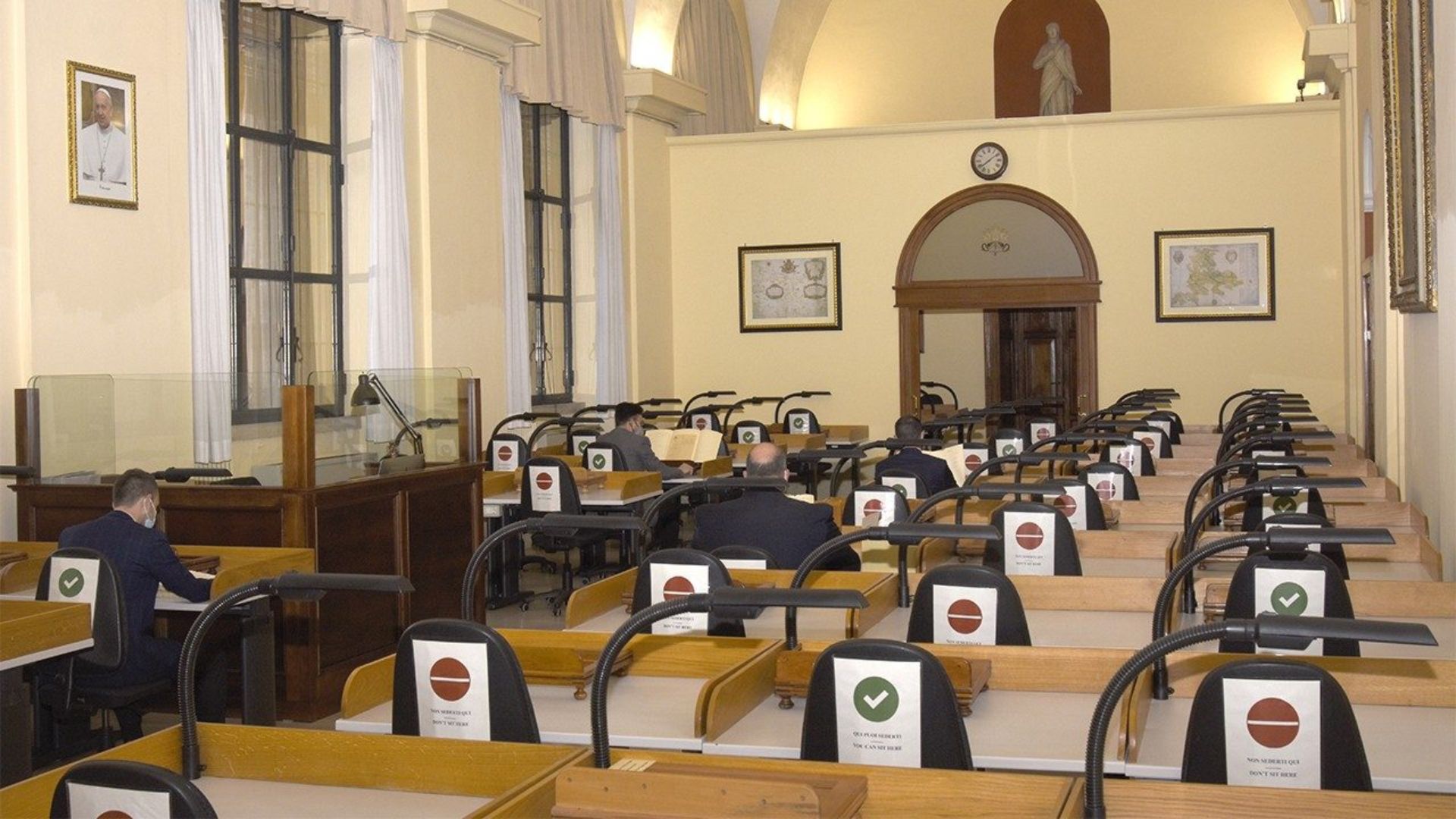VATICAN CITY - Pope Francis has appointed Father Rocco Ronzani, an Augustinian priest and professor of patristics, as the new prefect of the Vatican Apostolic Archive. This archive, formerly known as the Vatican Secret Archive, is renowned for preserving Church documents dating back to the eighth century.
The Vatican announced on July 5 that Father Ronzani, a scholar from Rome, will take the helm of the historic archive. Ronzani, born on February 21, 1978, entered the Order of St. Augustine in 1997 and was ordained a priest in 2004. He holds a doctorate in theology and patristic sciences from the Pontifical Patristic Institute Augustinianum in Rome, where he currently teaches. In addition to his academic duties, Ronzani serves as a consultant to the Vatican Dicastery for the Causes of Saints and as the director of the historical archives for the Augustinians’ Italian province.
Ronzani succeeds Archbishop Sergio Pagano, who served in the Vatican archives for 45 years, including 27 years as prefect. Pagano recently published a book titled "Secretum," highlighting significant historical events documented in the archives, such as the Galileo trial and the 1810 raid by Napoléon Bonaparte’s troops. Pagano will now assume the role of assessor for the Pontifical Committee for Historical Sciences.
The Vatican Apostolic Archive: A Treasure Trove of History
The Vatican Apostolic Archive, located within Vatican City, is an unparalleled repository of historical documents. With 53 miles of underground shelving, it holds records from historic papacies, ecumenical councils, conclaves, and Vatican nunciatures (embassies) around the world. This extensive collection offers a unique glimpse into the history of the Catholic Church and its interactions with global events.
One of the archive's most significant milestones was its opening to scholars by Pope Leo XIII in 1881. Since then, qualified researchers have been able to request access to specific documents, making it an invaluable resource for historians and scholars.

The archive has played a crucial role in historical research, especially since Pope Francis opened the archives of the pontificate of Pius XII in 2020. Many historians have since delved into these records to study the Church's role and actions during World War II.
Among the archive's treasures is the original 1530 letter addressed to Pope Clement VII from King Henry VIII, requesting an annulment so he could marry Anne Boleyn. This document is a testament to the significant historical events influenced by the Church.
In 2019, Pope Francis renamed the Vatican Secret Archive to the Vatican Apostolic Archive to eliminate the negative connotations associated with the word "secret" in modern interpretations. This renaming reflects the Church's commitment to transparency and scholarly research.
Significance to World History and Science
The Vatican Apostolic Archive is not only a repository of ecclesiastical records but also a crucial source for understanding world history and scientific advancements. Its documents provide insights into various historical periods, from the medieval era to contemporary times, and encompass a wide range of subjects, including theology, politics, art, and science.
.jpg)
The archives have shed light on pivotal moments in history, such as the trial of Galileo Galilei, which highlighted the complex relationship between the Church and scientific inquiry. Documents from the archive have also informed studies on the Church's interactions with political powers, including correspondence with monarchs and leaders, and the Church's role in shaping global events.
As Father Ronzani assumes his new role, the Vatican Apostolic Archive continues to be a beacon for scholars worldwide. His leadership is expected to further the archive's mission of preserving and sharing the rich historical legacy of the Catholic Church with the world.
.jpg)
With ongoing advancements in digital archiving and open-source technologies, the Vatican Apostolic Archive is poised to become even more accessible to researchers, ensuring that the wealth of knowledge it contains can continue to inform and inspire future generations.